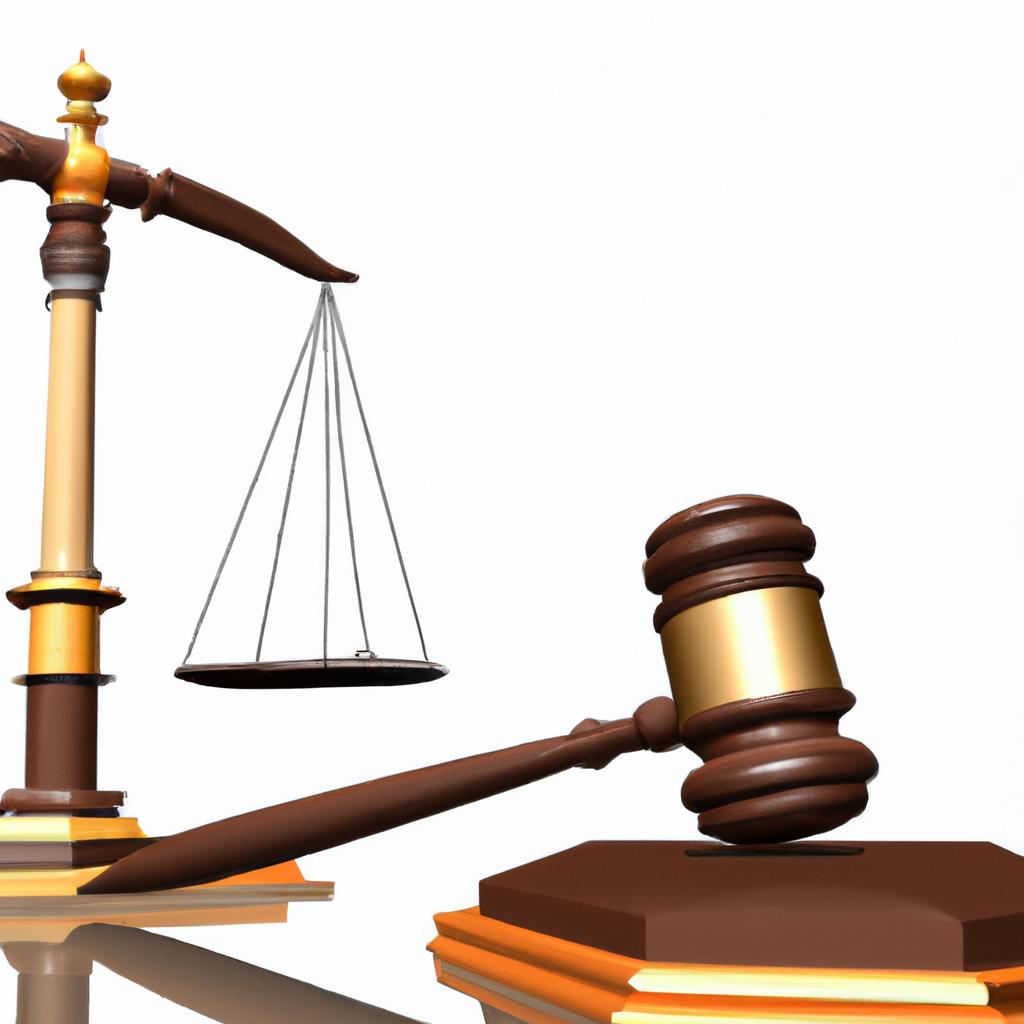In the convoluted world of real estate transactions, the type of deed used can make all the difference. As seasoned legal professionals at Morgan Legal Group, nestled in the bustling heart of New York City, we understand the importance of clarity and precision when it comes to property transfers. In this article, we delve into the intricacies of the three primary types of deeds, shedding light on their unique features and implications for both buyers and sellers. With our expertise in estate planning, probate, elder law, Wills, and trusts, we aim to demystify this essential aspect of real estate law for our valued readers.
Types of Deeds in Real Estate Transactions
When it comes to real estate transactions, there are three main types of deeds that are commonly used to transfer property ownership. These deeds serve different purposes and provide varying levels of protection to the buyer. Understanding the differences between these deeds is crucial when navigating the complex world of real estate.
The three main are:
- General Warranty Deed: This type of deed offers the highest level of protection to the buyer. It includes a guarantee from the seller that they have legal ownership of the property and the right to sell it. The seller also promises to defend the buyer against any claims to the property’s ownership.
- Special Warranty Deed: With a special warranty deed, the seller only guarantees that they have not caused any issues with the property during their ownership. This means that the buyer may not be protected against claims that arose before the seller owned the property.
- Quitclaim Deed: A quitclaim deed provides the least amount of protection to the buyer. It simply transfers the seller’s ownership rights to the buyer without any guarantees about the property’s history. This type of deed is often used in situations where the parties are familiar with each other and trust is not a concern.

Understanding the Purpose and Legal Implications
Deeds play a crucial role in real estate transactions, as they serve as legal documents that transfer ownership of property from one party to another. There are three main types of deeds that are commonly used in the United States:
- General Warranty Deed: This type of deed provides the highest level of protection for the buyer, as the seller guarantees that they have clear title to the property and will defend against any claims that may arise in the future.
- Special Warranty Deed: In this deed, the seller only guarantees that they have not created any defects in title during the time they owned the property. This type of deed offers less protection to the buyer compared to a general warranty deed.
- Quitclaim Deed: This type of deed offers the least amount of protection to the buyer, as the seller makes no guarantees about the status of the title. A quitclaim deed is often used in situations where property is being transferred without a traditional sale, such as between family members or in cases of divorce.
| Deed Type | Level of Protection |
|---|---|
| General Warranty Deed | High |
| Special Warranty Deed | Medium |
| Quitclaim Deed | Low |

Differentiating between General Warranty, Special Warranty, and Quitclaim Deeds
When it comes to real estate transactions, understanding the different types of deeds is essential. There are three main types of deeds: General Warranty Deeds, Special Warranty Deeds, and Quitclaim Deeds. Each type of deed offers different levels of protection and guarantees for the buyer.
General Warranty Deeds: This type of deed offers the highest level of protection for the buyer. With a General Warranty Deed, the seller guarantees that the title is free of any defects or claims, both past and present. This means that the seller is liable for any defects in the title that may arise in the future.

Key Considerations when Choosing the Right Deed for Your Property
General Warranty Deed: This type of deed offers the highest level of protection for the buyer because the seller guarantees that there are no encumbrances on the property, such as liens or easements. The seller also warrants that they have the legal right to sell the property. A general warranty deed provides the buyer with peace of mind and financial protection.
Special Warranty Deed: With a special warranty deed, the seller only guarantees that they have not done anything to impair the title during their ownership of the property. This type of deed offers less protection for the buyer compared to a general warranty deed. It is important for buyers to carefully review the terms of a special warranty deed before agreeing to it.
Q&A
Q: What are the three types of deeds?
A: The three types of deeds are warranty deeds, special warranty deeds, and quitclaim deeds.
Q: What is a warranty deed?
A: A warranty deed is a type of deed that guarantees the grantor owns the property and has the right to transfer it. It also promises that there are no undisclosed claims or liens on the property.
Q: What is a special warranty deed?
A: A special warranty deed is similar to a warranty deed, but it only guarantees the property’s title during the time the grantor owned it. It does not cover any claims or issues that may have arisen before the grantor’s ownership.
Q: What is a quitclaim deed?
A: A quitclaim deed is a deed that transfers whatever interest the grantor has in the property, without making any promises about the extent of that interest or the title’s quality. It is often used in situations where there may be uncertainty about the property’s ownership or to clear up any potential title issues.
Q: Can the type of deed used impact the buyer’s ownership rights?
A: Yes, the type of deed used can impact the buyer’s ownership rights. For example, a warranty deed provides more protection for the buyer, as it guarantees the title’s quality and the grantor’s right to transfer the property. On the other hand, a quitclaim deed offers the least protection, as it only transfers the grantor’s interest in the property without any guarantees about the title.
To Wrap It Up
In conclusion, understanding the three types of deeds - warranty deed, special warranty deed, and quitclaim deed – is essential for anyone involved in real estate transactions. Each type serves a different purpose and comes with its own set of benefits and risks. By familiarizing yourself with these deeds, you can make informed decisions and navigate the complex world of property ownership with confidence. Whether you are buying, selling, or transferring property, knowing which deed to use can help protect your interests and ensure a smooth transaction. So next time you find yourself dealing with a deed, remember the importance of choosing the right type for your specific situation. Happy property dealings!
 Title: Unveiling the Three Types of Deeds and Their Importance
Title: Unveiling the Three Types of Deeds and Their Importance
Meta Title: Understanding the Three Types of Deeds: Essential Knowledge for Property Owners
Meta Description: Discover the different types of deeds and their significance in the world of real estate. Learn about the benefits and practical tips of each type and gain a deeper understanding of the importance of deeds for property ownership.
As a property owner, you may have heard the term “deed” thrown around, but do you actually know what it means? A deed is a legal document that serves as proof of ownership for a property. It contains vital information such as the names of the previous and current property owners, a legal description of the property, and any encumbrances or restrictions that may affect the property.
However, not all deeds are the same. In fact, there are three main types of deeds – general warranty deed, special warranty deed, and quitclaim deed – each with its own set of characteristics and purposes. In this article, we will dive into each type of deed, their importance, and practical tips for property owners.
1. General Warranty Deed
A general warranty deed is considered the most comprehensive type of deed and provides the highest level of protection for property owners. It is typically used in traditional real estate transactions and guarantees that the property is free from any title defects or claims.
What sets a general warranty deed apart from the other types is that it includes a warranty of title. This means that the seller is ensuring that they have the legal right to sell the property and that there are no hidden issues or claims that could affect the buyer’s ownership in the future.
Benefits:
– Provides the buyer with peace of mind and protection against any potential title defects or claims.
– Offers a higher level of legal protection and ensures a clear transfer of ownership.
– Often preferred by lenders as it provides more assurance for the property’s title.
Practical Tips:
– As a buyer, always insist on getting a general warranty deed to ensure maximum protection of your investment.
– As a seller, obtaining a general warranty deed can improve the marketability of your property and build trust with potential buyers.
2. Special Warranty Deed
A special warranty deed, also known as a limited warranty deed, is similar to a general warranty deed but offers less protection for the buyer. Unlike a general warranty deed, a special warranty deed only provides a warranty against title defects that occurred during the seller’s ownership.
This means that the seller is not responsible for any issues that may have arisen before their ownership. Special warranty deeds are commonly used in commercial or investment property transactions, where the seller may not have a complete history of the property.
Benefits:
– Offers a level of protection and assurance for buyers without requiring the seller to take on the responsibility for any title defects that occurred before their ownership.
– Simplifies the process of transferring ownership for sellers who may not have complete knowledge of the property’s history.
Practical Tips:
– Buyers should conduct thorough due diligence and title searches before finalizing a transaction with a special warranty deed.
– Sellers must disclose any known title defects to avoid legal consequences.
3. Quitclaim Deed
Quitclaim deeds, also known as non-warranty deeds, are the simplest and least protective type of deed. They are often used in situations where there is no monetary exchange involved, such as transferring ownership between family members or adding or removing a spouse from a property title.
Unlike the previous two types, a quitclaim deed does not offer any warranties or guarantees. This means that the seller is not making any promises regarding the property’s title and is only transferring their ownership rights to the buyer.
Benefits:
– Simplifies the process of transferring ownership between parties.
– Useful for transferring partial ownership, such as adding a spouse to a property title or gifting a property.
Practical Tips:
– While quitclaim deeds are less secure than other types, they are still legally binding and must be executed properly.
– Always consult a real estate attorney before executing a quitclaim deed to ensure that all parties are protected.
In Conclusion
Understanding the different types of deeds is crucial for property owners to protect their investment and ensure a smooth transfer of ownership. It is important to carefully consider which type of deed is most suitable for your situation and seek guidance from a real estate attorney to avoid any legal issues.
Whether you are buying or selling a property, knowing the importance of deeds and choosing the right type can make a significant difference in your real estate journey. So, make sure to do your due diligence and use this information to make informed decisions for the sake of your property ownership.


